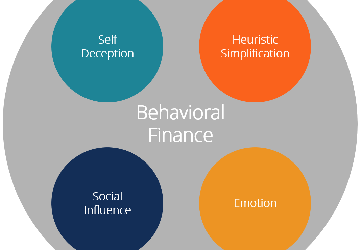The Impact of Hedge Fund Activism on Companies
Hedge fund activism refers to the strategy employed by hedge funds to influence the management and operations of publicly traded companies; this typically involves acquiring a significant stake in a company and then using that position to push for changes believed to enhance shareholder value. Hedge fund activism can have a complex and widespread effect on businesses, affecting financial performance, corporate governance, strategic direction, and general market perception.

1. Corporate Governance
Board Composition and Management Changes: Hedge fund activists often advocate for changes in the board of directors, including replacing underperforming or resistant board members with those more aligned with the activist's goals. They may also push for changes in the executive management team, including the removal or replacement of the CEO.
Operational Improvements: Activist investors frequently advocate operational efficiencies and cost-cutting measures. These can lead to a leaner, more focused company that operates more efficiently, potentially boosting profitability and shareholder returns.
2. Financial Performance
Shareholder Value: The primary goal of hedge fund activists is to increase shareholder value; this can be achieved through various strategies, including restructuring, divestitures, share buybacks, or special dividends. These actions often lead to a short-term increase in the company's stock price.
Long-term Performance: While some critics argue that hedge fund activism focuses too much on short-term gains at the expense of long-term company performance, studies have shown mixed results. In some cases, companies targeted by activists continue to perform well over the long term, while in others, the focus on short-term gains can lead to neglect of long-term strategic planning and investment.
3. Strategic Direction
Business Strategy and Focus: Activist investors may push for strategic changes, such as divesting non-core businesses, entering new markets, or refocusing on the company's core strengths; this can lead to a more precise, more focused strategic direction and unlock hidden value.
Mergers and Acquisitions: Hedge fund activists often advocate for mergers and acquisitions, either by pushing for the sale of the company to a strategic buyer or by encouraging the company to acquire other businesses to enhance its competitive position.
4. Market Perception
Investor Confidence: Activist involvement can sometimes boost investor confidence, signalling that influential investors believe there is untapped value within the business; this can lead to an increase in stock price and a more favourable market perception.
Reputation and Brand Impact: On the downside, though, aggressive activist campaigns can sometimes damage a company’s reputation and brand. Hostile takeovers and public disputes between activists and management can create uncertainty and distract from day-to-day operations.
How Can Hedge Fund Activism Reshape Corporate Innovation?
Hedge fund activism can significantly influence corporate innovation in various ways, both positively and negatively. Activist investors typically seek to enhance shareholder value, and their strategies can reshape how companies approach innovation. Here are some key impacts of hedge fund activism on corporate innovation:
Increased Focus on Core Competencies
Streamlining Operations
Activists often push companies to divest non-core assets and focus on their core competencies; this can lead to a more concentrated allocation of resources toward innovation in areas where the company has a competitive advantage, potentially driving more effective and impactful innovation efforts.

Resource Allocation and Reallocation
By reducing or eliminating investments in less profitable or non-essential areas, companies can redirect resources, including capital and talent, toward innovation projects more aligned with their strategic goals.
Short-Term vs. Long-Term Innovation
Short-Term Gains
Activist investors sometimes prioritize short-term financial performance over long-term investment in innovation; this can pressure management to deliver quick returns, potentially resulting in underfunding long-term R&D projects that may yield little benefits.
Balancing Act
Some activists recognize the importance of long-term innovation and may support strategic R&D investments, provided there is a clear pathway to value creation; this may result in a well-rounded strategy and balanced approach that considers both long-term innovation and short-term performance.
Strategic Partnerships and Mergers
Acquisitions for Innovation
Hedge fund activists may advocate for mergers and acquisitions to bolster a company's innovation capabilities. Acquiring innovative startups or companies with complementary technologies can enhance the acquirer's R&D capabilities and accelerate innovation.
Collaborations and Alliances
Activists might push for strategic partnerships and alliances with other companies or research institutions to foster innovation. These partnerships may open doors to new markets, skill sets, and technological advancements, stimulating creative growth.
Governance and Accountability
Board Expertise
Activists often push for changes in the board of directors, including adding members with expertise in technology and innovation. A board with a stronger focus on innovation can provide better oversight and support for innovative initiatives.
Increased Accountability
Activist investors typically demand greater accountability from management regarding the performance and outcomes of innovation projects; this can lead to more rigorous evaluation processes and performance metrics for R&D investments, ensuring that resources are effectively utilized.
Culture and Risk-Taking
Cultural Shifts
Activism can lead to cultural changes within a company, fostering a more entrepreneurial and risk-taking mindset. Activists can foster a more innovative atmosphere by opposing the status quo and promoting fresh perspectives.
Risk Aversion
Conversely, the pressure to meet short-term financial targets can make companies more risk-averse, potentially stifling bold and transformative innovation projects. Management may hesitate to invest in high-risk, high-reward innovation due to the fear of activist backlash.
Conclusion
Hedge fund activism has a complicated effect on businesses. There are risks and possible downsides, even though it can result in notable improvements in corporate governance, financial performance, and strategic direction.
The impact largely depends on each case's circumstances and how the activists and the company's management respond to the challenges and opportunities presented.
At the same time, hedge fund activism can reshape corporate innovation in multiple ways. While it can lead to a more focused and efficient allocation of resources, increased accountability, and strategic partnerships, it can also introduce pressures prioritizing short-term gains over long-term innovation.
The overall impact on innovation largely depends on the specific strategies employed by the activists and the company’s ability to balance immediate financial performance with sustained innovative growth.





